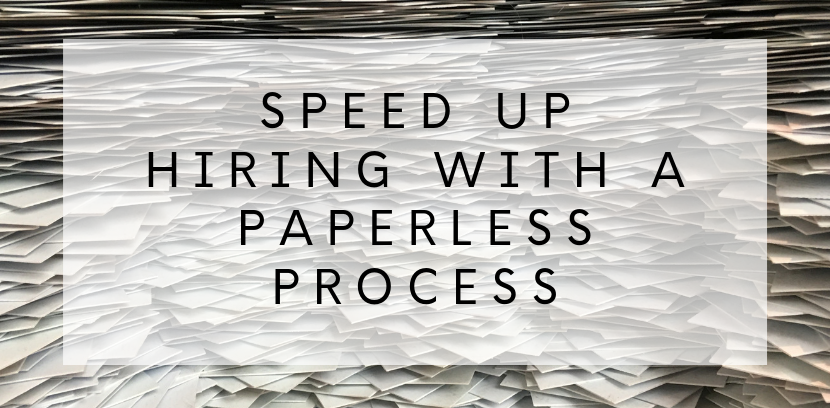Slow Hiring Process? Here's Why.

The company Glassdoor published its recent study about hiring delays earlier this month. The research looked at over 80,000 company hiring reviews from the United States and other countries. The study highlights the differences based on industry and location to give job seekers an idea of what to expect during the hiring process. Glassdoor also noted that companies do have control over the length of the interview/hiring process as "company-specific factors" explained some of the variation in delays.
Want to speed up your company's slow hiring process? First, determine what's causing the slow down.
How Long is the Typical Hiring Process?
The average hiring and interview process, according to Glassdoor's research, is 23.7 days across all countries surveyed. The average in the United States is 23.8. The survey1 also revealed that location factors contributed to some hiring delays. For instance:
- Brazil and France had the longest hiring process at 39.6 and 38.9 days, respectively.
- Sao Paulo's average hiring process is 40.2 days; Paris' hiring process averages at 37 days.
- India had the shortest hiring process at 16.1 days.
- Countries with labor market regulations, that is, less flexibility in hiring and firing, have longer delays.
- Washington, DC's average hiring process takes 33.2 days; Kansas City's was 16.9 days.
Industry also factored into the hiring delays with government jobs taking the longest at 53.8 days. The interview, screening, and security clearances make this process the longest in the United States. Lower skilled or easily obtained skilled employment had shorter hiring processes. Others to note:
- Aerospace and Defense at 32.6 days
- Biotech and Pharmaceuticals at 28.1
- Internet and Technology at 24.4
- Accounting and Legal at 19.7
- Restaurants and Bars at 10.2 days (the shortest)
The slowest job to interview for is a Professor at 60.3 days average. Executive managers can expect a hiring process of 30.9 days.
To see the rest of the list, click this link to go to Glassdoor.
What Causes Hiring Delays?
Other than the industry and location, there are many ways that employers are contributing to the cause of hiring delays. Glassdoor suggests that employers examine their own hiring processes to determine any company or job-specific factors such as:
- the number of interviews required
- the number and type of screens required
- if the hiring process delays are shorter, longer, or different per job
If the candidate experience isn't positive, the employer also runs the risk of losing out on high quality applicants. Is the hiring process doing too much to weed out prospective employees or not enough?
Creating a More Efficient Hiring Process
If a slow hiring process means that employers are obtaining the perfect fit for the job, there may not be much of a need to speed up the process. All employers should examine their hiring processes to determine if they are efficiently meeting the hiring needs of the organization.
CareerBuilder has released its 2017 Candidate Experience survey to determine some disparities in employer hiring processes. Some efficiencies may require the use of technology and others may simply be new considerations in hiring. Here are some ways to create a more efficient hiring process:
- Use a hiring portal or applicant tracking system - Most candidates are used to mobile and internet-ready experiences with everything from ordering food to applying for jobs. The use of a hiring portal, for applying and background checks, can also help alleviate mistyped data or the reentry of data.
- Preparing or training hiring managers - Hiring managers should have some training or consistent and documented hiring practices to prepare them for the process. A consistent process for interviewing and screening will naturally be more efficient.
- Effective and systematic background checks - Allowing the candidate to enter their own information into an applicant tracking system will minimize or eliminate the risk of data errors. Employers can also create a system by which certain background checks are run as they are related to particular jobs. This reduces the need and expense of running all screens on every employee, thus reducing the length of wait time for results.
As with any organizational process, surveys and process examination are necessary to ensure quality and efficiencies. Your employer hiring process is no different. Creating a positive candidate experience can also attract better employees. Use of data from companies like Glassdoor and CareerBuilder can be used as benchmarks to measure your own hiring successes and shortfalls.
Share this
You May Also Like
These Related Stories

The EEOC Examines Using AI for Hiring

How to Choose the Best Employment Background Check Company

